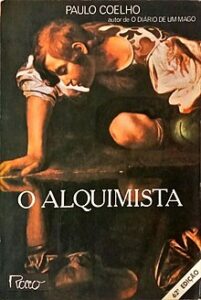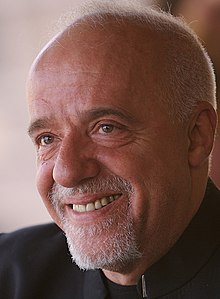The Alchemist By Paulo Coelho Summary And Analysis is a greatly written piece of literature though the way it is written makes it sound as if it was a badly written 8-year-old self-help book, but if you are interested, be sure to check us out.
The novel “The Alchemist” by Paulo Coelho was initially released in 1988. The story follows a shepherd named Santiago on his quest to find treasure at the pyramids in Egypt. The novel is an example of magical realism, a genre that combines realistic and fantastical elements.
Character’s Know-How Of The Alchemist
Here is a list of the main characters in “The Alchemist” by Paulo Coelho with a brief description of each:
- Santiago: A Spanish shepherd who leaves home to discover his Personal Legend. The main character of the novel is him.
- Fatima: Santiago’s soulmate, who teaches him about the Soul of the World.
The Alchemist: The Alchemist is a resident of the Al-Fayoum Oasis who is 200 years old and possesses an enormous amount of power as an alchemist. He helps Santiago on his quest for the treasure. - Al-Fayoum Oasis: He helps Santiago on his quest for the treasure.
- The gypsy woman: An old woman living in Tarifa who interprets dreams.
- The crystal merchant: On top of a desolate hill, there is a merchant who is struggling and owns a crystal shop.
- Melchizedek: The King of Salem who appears to possess magical powers and helps those pursuing their Personal Legends.
Themes That Come Up
The novel explores several themes, including:
Personal Legend:
The main theme of the novel is to find one’s purpose in life, or one’s Personal Legend, and to overcome the obstacles and fears that stand in the way. The novel emphasizes that everyone has a unique destiny or calling, and it is up to each individual to pursue it. Santiago’s journey to find his treasure is a metaphor for this quest.
Interconnectedness of All Things:
The novel also explores the idea of how everything is connected. Santiago discovers that he can communicate with nature and the interconnected universe. This theme reflects Coelho’s belief in pantheism, which holds that God is present in all things.
Maktub:
“Maktub” is an Arabic word that means “it is written.” This phrase appears throughout the novel and represents the idea that everything happens for a reason. The concept of Maktub suggests that there is a universal plan for each person’s life, and everything that happens is part of that plan.
Alchemy:
Alchemy is another important theme in the novel. Santiago meets an alchemist who teaches him about the principles of alchemy, which involve transforming base metals into gold. The Alchemist teaches Santiago that alchemy is not just about turning metal into gold but also about transforming oneself into a better person.
Analysis Of The Alchemist
“The Alchemist” has been interpreted as an allegory for life’s journey and the pursuit of one’s dreams. The novel has also been analyzed through various literary lenses, such as Jungian psychology, existentialism, and postmodernism.
Jungian psychology emphasizes the importance of individuation, or becoming one’s true self, which aligns with Santiago’s journey to find his Legend.

Existentialism focuses on individual freedom and choice, which are also central themes in “The Alchemist.” Postmodernism emphasizes the idea that there are multiple interpretations of reality, which can be seen in the novel’s use of magical realism.
Millions of readers worldwide have been inspired by the timeless classic “The Alchemist.” It encourages us to follow our hearts and pursue our dreams, no matter how impossible they may seem. Coelho’s writing is poetic and evocative, transporting readers to a world of magic and wonder. If you’re looking for a book that will inspire you to live your best life, “The Alchemist” is an excellent choice.
The Alchemist By Paulo Coelho Summary And Analysis Thoughts Of The Author Explained
Paulo Coelho is a Brazilian author who wrote The Alchemist, A modern classic novel that has sold millions of copies globally. The Alchemist is a story about Santiago, a shepherd on a journey to fulfill his destiny and find treasure. During his journey, the protagonist encounters different individuals who enlighten him about the language of the world, the Soul of the world, and the principle of favorability.

Paulo Coelho’s thoughts about his book The Alchemist are not easy to summarize, as he has expressed them in many interviews, articles, and speeches over the years. However, some of the main themes that he has discussed are:
The importance of following one’s dreams and personal Legend.
Coelho believes that everyone has a unique purpose in life and that the universe conspires to help them achieve it. He also believes that when one pursues their dream with passion and courage, they experience joy and fulfillment.
The power of love and alchemy. Coelho considers love to be the most powerful force in the world and the ultimate reason for living. He also sees alchemy as a metaphor for transforming oneself and the world through love. He believes that when we love, we always strive to be better than we are. When we strive to improve ourselves, we improve the world around us.
The wisdom of simplicity and intuition. Coelho advocates for a simple and intuitive way of living, in contrast to the complexity and rationality of modern society. He says that “simple things are the most extraordinary things, and only the wise can see them.” He also encourages people to listen to their hearts and trust their inner guidance.
The value of adventure and learning. Coelho views life as a journey of discovery and growth, where one can encounter different cultures, religions, philosophies, and mysteries. He believes that “the world is like a book, and those who do not travel read only one page.” He also states that to learn is to come into contact with a world that you know nothing about.
These are some of the thoughts that Paulo Coelho has shared about his book The Alchemist. If you want to learn more about his views and inspirations, you can read some of his interviews or articles online or watch some of his speeches on YouTube. I hope you enjoyed reading The Alchemist as much as I did.
Here Are Some Critics Of The Alchemist
The critics of this book are mostly positive, praising the author’s storytelling, wisdom, and philosophy. However, some critics also point out the book’s flaws, such as its simplicity, repetition, and unrealistic optimism. Here are some examples of what the critics have said about The Alchemist:
The Alchemist is a book of profound metaphors and imagery that resonate with contemporary society. I thoroughly enjoyed each page of it, as I found the simple yet beautiful writing very impactful.”
With a dreamy and pensive writing style, the author weaves multiple sage concepts into the storyline, which a philosopher could ponder for years. Coelho writes profound ideas in simple language about destiny, failure, and unity.
I found “The Alchemist” to be an engrossing book with enchanting storytelling. The choice of words is impeccable and filled with profound wisdom and philosophy. It gives you a sense of inspiration. The narrative is captivating and radiates positivity, which is crucial in our existence.
“An inspiring, quick read. The Alchemist is a short novel by Paulo Coelho with a word count of about 45k. I literally reread the book in a weekend to write this review.”
“The Alchemist is a charming fable that will not fail to capture your imagination. But it is also simplistic and repetitive, and it suffers from Coelho’s tendency to talk down to his readers and to reduce life’s complexities into facile platitudes.”
The Alchemist is a novel that combines medieval mysticism with self-help.

